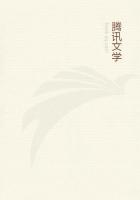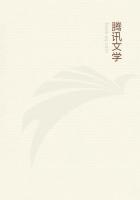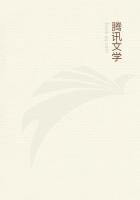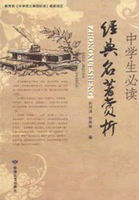Thoroughly worldly people never understand even the world; they rely altogether on a few cynical maxims which are not true.
Once I remember walking with a prosperous publisher, who made a remark which I had often heard before; it is, indeed, almost a motto of the modern world. Yet I had heard it once too often, and I saw suddenly that there was nothing in it. The publisher said of somebody, "That man will get on; he believes in himself."
And I remember that as I lifted my head to listen, my eye caught an omnibus on which was written "Hanwell." I said to him, "Shall I tell you where the men are who believe most in themselves?
For I can tell you. I know of men who believe in themselves more colossally than Napoleon or Caesar. I know where flames the fixed star of certainty and success. I can guide you to the thrones of the Super-men. The men who really believe in themselves are all in lunatic asylums." He said mildly that there were a good many men after all who believed in themselves and who were not in lunatic asylums.
"Yes, there are," I retorted, "and you of all men ought to know them.
That drunken poet from whom you would not take a dreary tragedy, he believed in himself. That elderly minister with an epic from whom you were hiding in a back room, he believed in himself.
If you consulted your business experience instead of your ugly individualistic philosophy, you would know that believing in himself is one of the commonest signs of a rotter. Actors who can't act believe in themselves; and debtors who won't pay. It would be much truer to say that a man will certainly fail, because he believes in himself. Complete self-confidence is not merely a sin; complete self-confidence is a weakness. Believing utterly in one's self is a hysterical and superstitious belief like believing in Joanna Southcote: the man who has it has `Hanwell' written on his face as plain as it is written on that omnibus." And to all this my friend the publisher made this very deep and effective reply, "Well, if a man is not to believe in himself, in what is he to believe?"
After a long pause I replied, "I will go home and write a book in answer to that question." This is the book that I have written in answer to it.
But I think this book may well start where our argument started--in the neighbourhood of the mad-house. Modern masters of science are much impressed with the need of beginning all inquiry with a fact.
The ancient masters of religion were quite equally impressed with that necessity. They began with the fact of sin--a fact as practical as potatoes. Whether or no man could be washed in miraculous waters, there was no doubt at any rate that he wanted washing.
But certain religious leaders in London, not mere materialists, have begun in our day not to deny the highly disputable water, but to deny the indisputable dirt. Certain new theologians dispute original sin, which is the only part of Christian theology which can really be proved. Some followers of the Reverend R.J.Campbell, in their almost too fastidious spirituality, admit divine sinlessness, which they cannot see even in their dreams. But they essentially deny human sin, which they can see in the street. The strongest saints and the strongest sceptics alike took positive evil as the starting-point of their argument. If it be true (as it certainly is) that a man can feel exquisite happiness in skinning a cat, then the religious philosopher can only draw one of two deductions.
He must either deny the existence of God, as all atheists do; or he must deny the present union between God and man, as all Christians do.
The new theologians seem to think it a highly rationalistic solution to deny the cat.
In this remarkable situation it is plainly not now possible (with any hope of a universal appeal) to start, as our fathers did, with the fact of sin. This very fact which was to them (and is to me) as plain as a pikestaff, is the very fact that has been specially diluted or denied. But though moderns deny the existence of sin, I do not think that they have yet denied the existence of a lunatic asylum. We all agree still that there is a collapse of the intellect as unmistakable as a falling house. Men deny hell, but not, as yet, Hanwell. For the purpose of our primary argument the one may very well stand where the other stood. I mean that as all thoughts and theories were once judged by whether they tended to make a man lose his soul, so for our present purpose all modern thoughts and theories may be judged by whether they tend to make a man lose his wits.
It is true that some speak lightly and loosely of insanity as in itself attractive. But a moment's thought will show that if disease is beautiful, it is generally some one else's disease.
A blind man may be picturesque; but it requires two eyes to see the picture. And similarly even the wildest poetry of insanity can only be enjoyed by the sane. To the insane man his insanity is quite prosaic, because it is quite true. A man who thinks himself a chicken is to himself as ordinary as a chicken. A man who thinks he is a bit of glass is to himself as dull as a bit of glass.
It is the homogeneity of his mind which makes him dull, and which makes him mad. It is only because we see the irony of his idea that we think him even amusing; it is only because he does not see the irony of his idea that he is put in Hanwell at all. In short, oddities only strike ordinary people. Oddities do not strike odd people. This is why ordinary people have a much more exciting time; while odd people are always complaining of the dulness of life.
This is also why the new novels die so quickly, and why the old fairy tales endure for ever. The old fairy tale makes the hero a normal human boy; it is his adventures that are startling; they startle him because he is normal. But in the modern psychological novel the hero is abnormal; the centre is not central.


